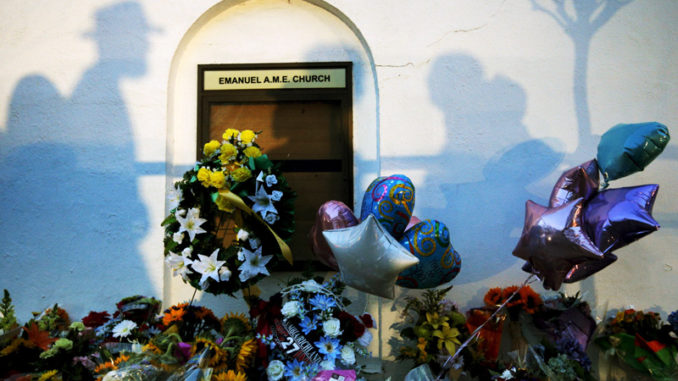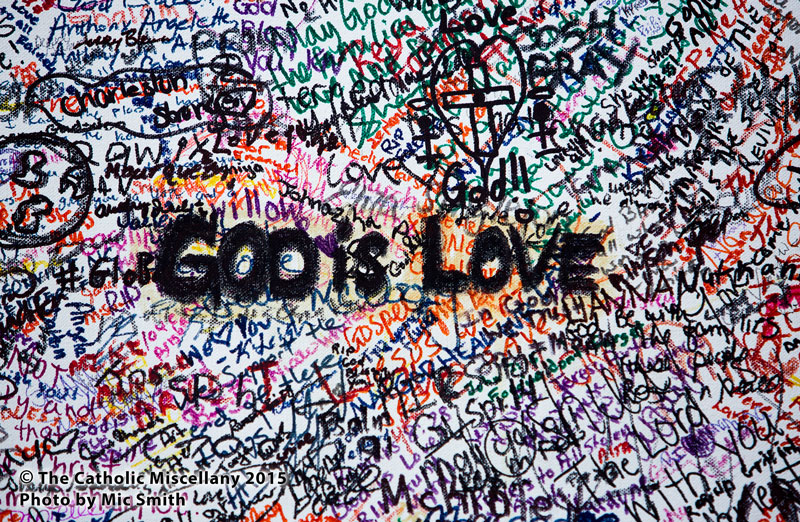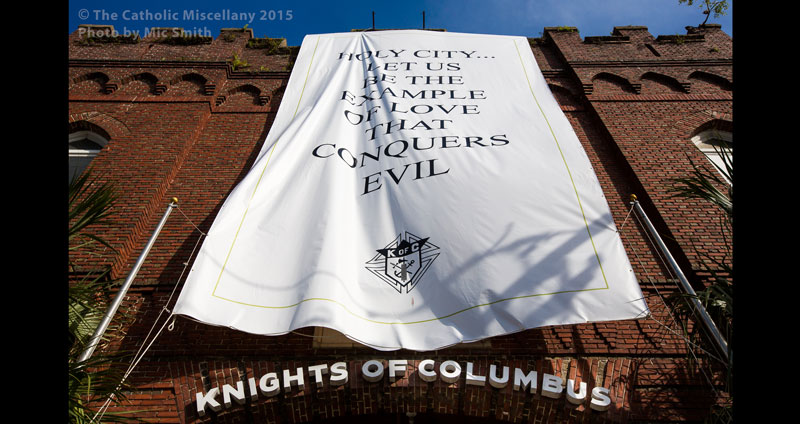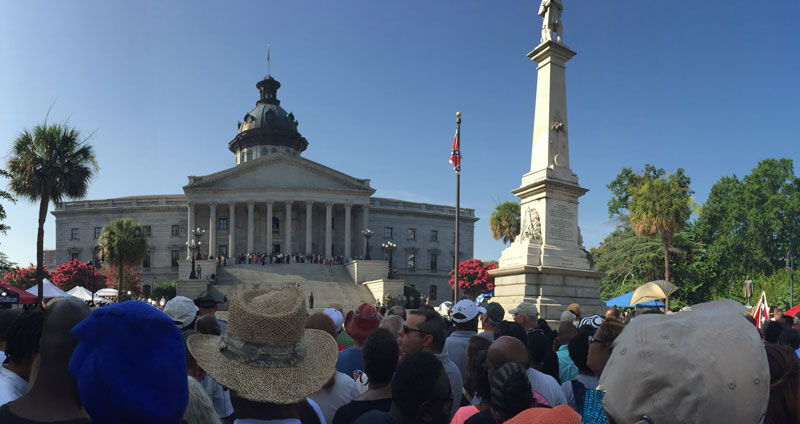
CHARLESTON—The cards and letters left by mourners around the world after the tragic shooting at Emmanuel African Methodist Episcopal Church have found a permanent home in the archives of the S.C. Historical Society.
The process of getting them there was aided by the Diocese of Charleston’s own Office of Archives and Records Management, staffed by Brian Fahey and Melissa Mabry.
On June 17, 2015, a white supremacist shot and killed nine members of Mother Emanuel AME Church. After the attack, people from across the globe reached out to the church and visitors placed thousands of flowers, candles, cards and other items in front of the building on Calhoun Street.
Archivists Mabry and Fahey later helped collect the memorial items left outside Mother Emanuel, as well as clean up the site as needed, which included removing or changing the water for flowers. They sorted items, moved them to multiple locations as needed, processed some correspondence, and arranged for the memorial items to be temporarily housed at the Diocese of Charleston’s West Chancery building, Mabry said.
These items that included cards and letters from people expressing sympathy were kept as a record of the spontaneous memorial site that formed after the shooting, she said.
Three offices at the diocesan building were used as storage. They housed art work, quilts (comfort quilts), stuffed animals, flowers and candles, Mabry said.
The Historical Society reported that Emanuel AME donated more than 50 boxes to their holdings, which are kept at the College of Charleston’s Addlestone Library on Calhoun Street.
The items will eventually be available for public viewing.
The Charleston Chronicle reported that the church assembled a group of cultural institution professionals to address the mounting collection of items being sent to and left at the church. CALM stepped in to assist with the multiple tasks at hand. CALM is a volunteer community of cultural institution professionals that formed in the wake of Hurricane Hugo to help establish plans for disaster preparation and recovery.
The professionals who volunteer represent multiple local cultural organizations including staff members of the Historical Society and the Diocese of Charleston’s archivists, Patriot’s Point, Charleston Museum, Historic Charleston Foundation, Avery Research Center, Charleston County Public Library, City of Charleston, College of Charleston, Charleston Library Society, and Medical University of South Carolina.



